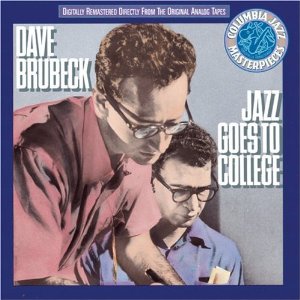
Jazz pianist Dave Brubeck passed away on Wednesday, one day short of his 92nd birthday. Brubeck became synonymous with jazz for many Americans in the 1950’s particularly after he appeared on the cover of Time in 1954 (only the second jazz musician accorded this honor after Louis Armstrong).
Dave Brubeck grew up on a cattle ranch in Concord, California and entered the College of the Pacific to study veterinary medicine but soon transferred to the music conservatory. He was nearly denied his degree after it was revealed that he couldn’t read music but he was allowed to receive his diploma on the condition that he never become a music teacher.
As it turned out, he did quite well for himself. During World War II while performing in an army band (one of the first racially integrated groups in the military), Brubeck met saxophone player Paul Desmond and the pair would collaborate for many decades. The formation of the Dave Brubeck Quartet in 1951 saw them tour nationally, with a particular focus on college campuses where they recorded a variety of live albums.
The Dave Brubeck Quartet reached the height of their fame in 1959 with the studio album Time Out which sold more than a million copies, due in part to the success of the song “Take Five,” a Desmond composition. That song and the album as a whole placed an emphasis on non-traditional time signatures, such as 9/8 and 5/4, which Brubeck later explained were inspired by his observation of street musicians in Turkey.
The Dave Brubeck Quartet would continue to tour over the decade to follow, creating a number of renowned albums, including 1963’s celebrated At Carnegie Hall which many critics place on their pantheon of best live jazz records. The group also continued its explorations with time in the studio setting through a series of albums.
After the Dave Brubeck Quartet disbanded in 1967, Brubeck placed an initial focus on orchestral pieces. Eventually he also returned to the sounds that gained him notoriety, often joined by his sons and occasionally reuniting with Desmond.
Brubeck’s status as a jazz icon is reflected in the song “New Frontier” on Donald Fagen’s 1983 album The Nightfly in which Fagen looks back to the early 60s as he sings, “I hear you’re mad about Brubeck/I like your eyes, I like him too/He’s an artist, a pioneer/We’ve got to have some music on the new frontier.”
The pianist remained active well past the age of 90. His career and ongoing musical efforts were captured in the 2010 documentary film Dave Brubeck: In His Own Sweet Way, in which Clint Eastwood served as executive producer.
Brubeck remained a global ambassador to the end and a concert planned to celebrate his 92nd birthday tomorrow, will still take place as a tribute to the man and his music.


No Comments comments associated with this post